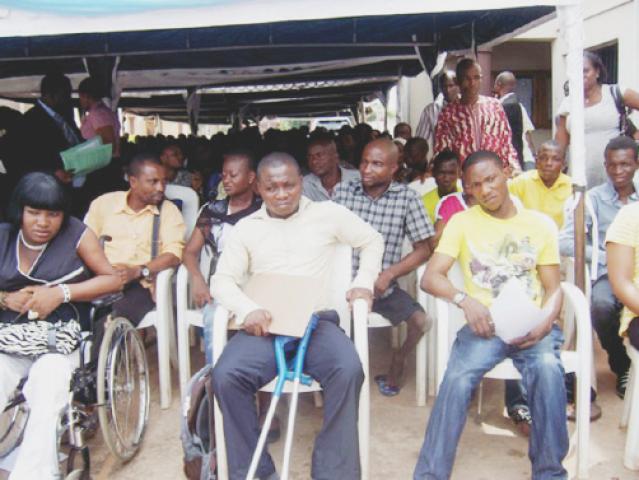Anyone who is yet to assume any position of authority may not actually comprehend the tune of this analysis. But if you have experienced any, one wouldn’t be far from the truth if he says you would be smiling while reading this, because you had personally dined with the aforementioned spirit and probably conquered.
While growing up, I saw myself as one who was naturally imbued with leadership skills; and in my own little way, I was showcasing it. I could informally assemble members of my peer group, and effortlessly counsel them. I was enjoying the task and relationship, not until one fateful day when one of us displayed an unforgettable character just to discredit my person.The essence of the above reference is to indicate that, as little as we were, someone was already envying the service I was rendering to my childhood pals, even though I was obviously gaining absolutely nothing from the position. Meanwhile, this topic is informed by the need to highlight both the pleasant and unpleasant features of a leadership post, hence let me not be so quick in discussing the latter.
Leadership responsibility takes you closer to the best point; it brings out the hidden best in you. You may initially be of the view that your person lacks the ability to handle a certain leadership position, but the moment you occupy it, you would inadvertently find yourself exercising the required capability.A leadership post serves as a motivational tool. It propels the occupant to possess the zeal to do more. It triggers that innermost motivation in you that wouldn’t have ordinarily being displayed if you never occupied the position. It reinvigorates the passion that might had left you in the past. The passion and vigour to triumph will invariably knock at your door, thereby awakening the candid quest to work extra mile towards actualizing a conceived goal. The intent to do more would keep flying in your mindset.
It attracts innovation. As the incumbent occupant of the position, there’s a natural tendency that would make you yearn for innovative ideas. You would want to do better than your predecessor; you would wish people see you as the best thus far since inception of the position whenever you eventually left. Every genuine leader is desired to leave a legacy as s/he takes a bow after tenure expiration. In other words, he wants to be reckoned as second to none, not second best.It keeps you informed at all times. As a leader, you would always be ahead of others as regards information receipt. A leadership position gives you that desire to acquire firsthand news concerning your jurisdiction, hence would detest to receive it as stale. Of course, “information is power”, because it gives you the needed tool for adequate preparation toward averting inconsequential excuses. A leader is in a good position, and has all it takes, to be aptly informed.
Away from the fascinating intrigues of a leadership position, there are some other uncalled feelings that might preoccupy your mind, hence making you stay off the track unwittingly as the journey progresses. The position intoxicates, regardless of its status. There’s a sense of intoxication one feels while occupying a post of authority; he feels drunk on some occasions, especially when taking decision on critical issues or while addressing his subordinates. By so doing, he would mistakenly step on the toes of his superiors, or the king makers, as the case may be.It only takes His grace for leaders to retrace their steps whenever they’re intoxicated. This is the reason a leader who does not recognize his creator, usually fumbles in the long run, thereby finds himself crumbling without pulsation. One thing you must acknowledge as a leader is that, you can never successfully do it alone without a mentor, guardian, and/or counsellor, or what have you; this is a fact you mustn’t take for granted. Leadership must be a teamwork if truly you intend to excel.
Another bitter side of leadership positions is sycophancy. I’ve in the past done a very extensive work on this; as an analyst, I took time to dissect the intricacies of the monster called sycophancy. Believe it or not, any form of leadership is synonymous with sycophancy, and the latter kills any leader who isn’t careful enough faster than poison would. It’s a tool that swiftly devours a leader, even when he is decorated with an uncommon armour.In his words, Silver Mars opined “A friend who agrees with everything that you say and do, is worse than the foe. Beware the sycophant!” Being human, particularly a leader, you would desire to see everyone dancing to all your tunes, forgetting that anyone could err. Everybody desires to witness people’s acceptance over their opinions or decisions, let alone a leader.
While in the position, people would invariably troop in to tell you ‘sweet’ things. Your ‘friends’ will tell you how good and cleverly you are doing, but would never find time to admonish a few of your policies even when their negative implications are so glaring. You would laugh and wine with them and crack jokes together, not knowing they are actually laughing at you while awaiting your downfall. To overcome this challenge, you must possess an independent mindset; be open to all but always endeavour to think deeply over their words before accepting, or making use of, them.In her words, Sheryl Sanberg enthused, “Leadership is about making others better as a result of your presence and making sure that impact lasts in your absence.” It’s simply about leaving indelible footprints behind, which would speak for your personality even many years after your exit.
The bitter truth is that, a leadership position isn’t for everybody; not everyone is meant to occupy it, irrespective of paper qualifications. Though anyone can learn to be a good leader, but a true leader is unequivocally inborn. Think about it! The Author could be reached via frednwaozor@gmail.com











